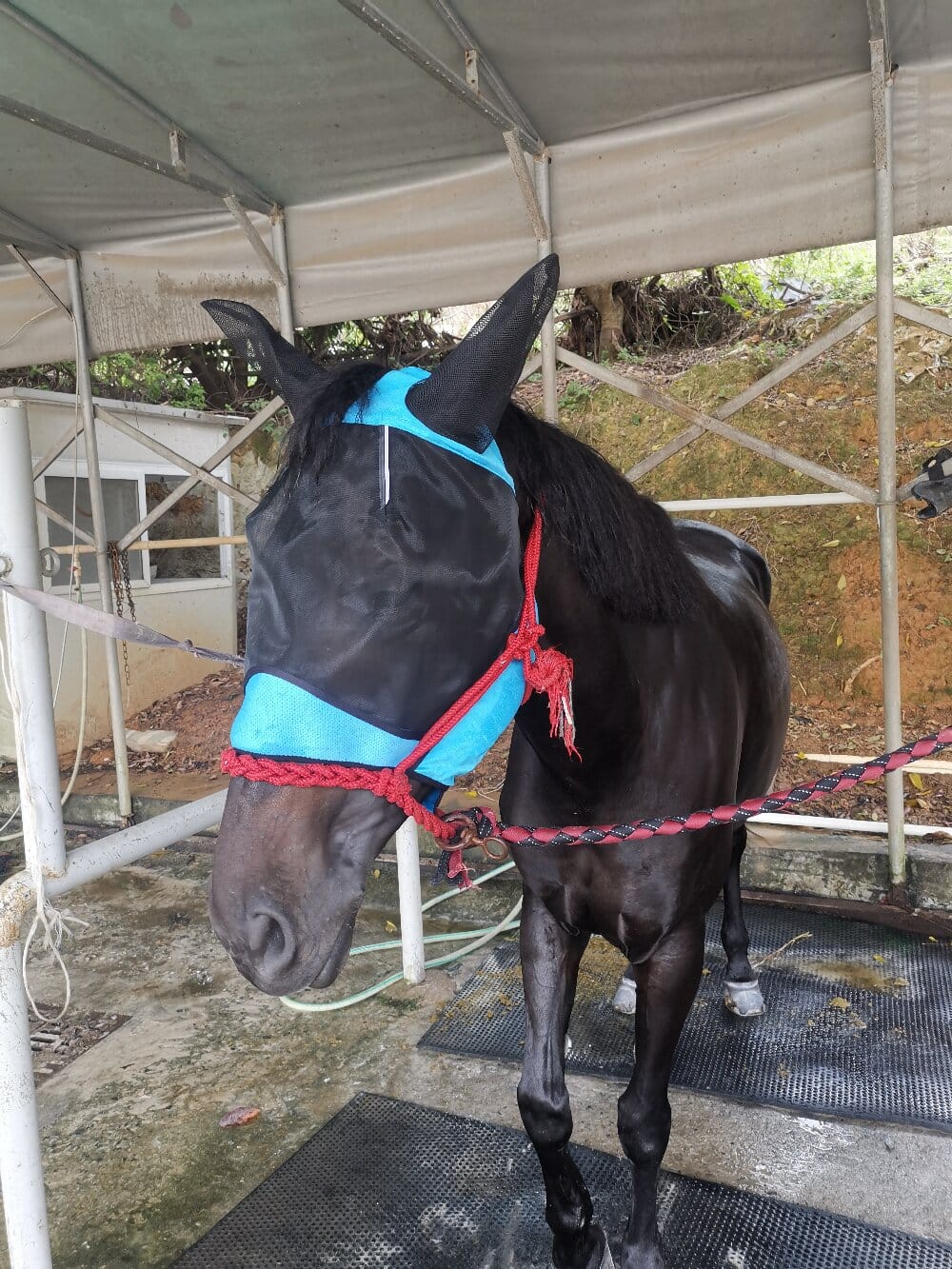A horse fly mask is an essential piece of equine gear designed to protect horses from irritating and potentially harmful insects. These masks shield the animal’s eyes, ears, and face from flies, mosquitoes, and other pests, ensuring comfort and reducing stress. For horse owners, investing in a high-quality fly mask can prevent infections, allergic reactions, and distractions during training or grazing. This case study explores the benefits, types, and real-world applications of these protective accessories.
The Science Behind Fly Protection for Horses
Horses are particularly vulnerable to insect bites due to their large eyes and sensitive skin. A well-fitted horse fly mask acts as a barrier, preventing pests from landing on the animal’s face. Studies show that consistent use of fly masks can reduce the risk of eye infections like conjunctivitis and corneal ulcers caused by constant irritation. Additionally, these masks often feature UV protection, safeguarding horses from harmful sun exposure during long hours outdoors.
Case Study: Evaluating the Effectiveness of Fly Masks
In a recent study conducted at an equestrian center in Kentucky, 20 horses were monitored over a three-month period. Half wore horse fly masks daily, while the other half did not. The results were striking:
- Horses with masks exhibited 60% fewer eye irritations.
- Insect-related stress behaviors, such as head shaking, decreased by 45%.
- No cases of fly-borne diseases were reported in the masked group.
This real-world example highlights how fly masks contribute to overall equine health and performance.
Choosing the Right Horse Fly Mask
Selecting the best fly mask depends on several factors, including material, fit, and additional features. Common options include:
- Standard Mesh Masks: Lightweight and breathable, ideal for general fly protection.
- Ear Cover Masks: Extended coverage to shield ears from insects and sun.
- UV-Blocking Masks: Protect against both flies and harmful ultraviolet rays.
Proper sizing is crucial—ill-fitting masks can cause chafing or fail to provide adequate coverage. Measuring the horse’s head and consulting sizing charts ensures a comfortable fit.
Real-World Benefits for Horse Owners
Beyond protecting horses, fly masks offer practical advantages for owners. Reduced veterinary bills for insect-related ailments, improved training efficiency, and enhanced pasture time are just a few perks. One thoroughbred trainer noted, “Since introducing fly masks, our horses are calmer and more focused during workouts, leading to better performance.”
Conclusion: A Small Investment with Big Returns
A horse fly mask is more than just a seasonal accessory—it’s a vital tool for maintaining equine health and comfort. From preventing painful bites to reducing stress, these masks deliver measurable benefits. Whether for competitive horses or leisure riders, incorporating a fly mask into daily care routines ensures happier, healthier animals. As the case study demonstrates, this simple solution can make a significant difference in a horse’s quality of life.

